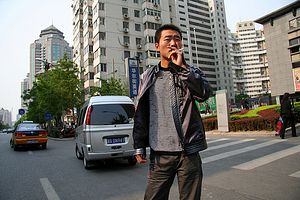Chinese leaders are considering a nationwide ban on public smoking alongside a tightening of regulations for the state-run tobacco monopoly. In a country with over 300 million smokers and a tobacco industry that generates more than $95 billion in tax revenues, those may prove to be impossible feats – despite the obvious health risks associated with smoking.
“Smoking-related diseases cause more than a million deaths in the country a year, and experts expect the number to nearly triple by 2030,” said The Guardian. “Smoking is deeply ingrained in the country’s business culture; cigarettes are doled out as a token of respect and given as gifts on formal occasions, especially outside of major cities, where there is no social stigma against smoking anywhere, at any time.”
According to Yang Jie, deputy director of the CDC’s Office of Tobacco Control, the Chinese legislature has been conducting research into a smoking ban since earlier this year. At present, smoking bans in China are largely limited to schools and hospitals.
“Optimistically, I expect that we can have a national smoke-free law in China within a year,” he said during a briefing about rising healthcare costs related to tobacco use.
Yang’s optimism, however, seems to be a stark contrast to China’s booming tobacco production. Last year, China produced approximately 2.5 trillion cigarettes. – despite signing the World Health Organization’s (WHO) Framework Convention on Tobacco Control in 2003.
According to a 2012 WHO assessment, China scored only two out of 16 points for its efforts to curb smoking in public areas – even with laws in place, the Health Ministry lacks the power to enforce them. In the same assessment, China received zero points for reducing tobacco advertising.
Wang Ke’an, director of the Thinktank Research Center for Health Development in Beijing, thinks that larger warning labels on cigarette packs could help spread awareness about the dangers of smoking. The political conflict of interest – China’s premier, Li Keqiang, oversees national health policy while his brother, Li Keming, runs China National Tobacco – complicates making changes.
But changes may be imminent. The Communist Party’s Central Party School released a 200-page tobacco control document earlier this week that seeks to take oversight of tobacco control measures away from the State Tobacco Monopoly Administration.
“The document also suggests that the State Council establish a national tobacco control office or designate a specific health department to ‘take charge, supervising the control of tobacco in all processes from production to sales,’” said Bloomberg. “Such a step would overcome a dilemma created by the fact that the regulator and China National Tobacco … are essentially the same organization.”
With a third of the world’s smokers and prickly bureaucratic tie-ups, a nationwide tobacco ban is likely to take longer than a year to materialize. And even if it does, enforcement will be an entirely different matter.

































